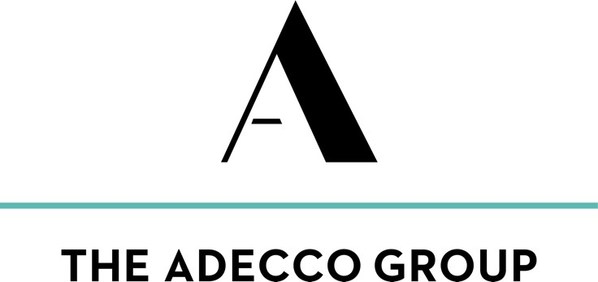 |
The Adecco Group's 2024 Global Workforce of the Future survey of 35,000 workers captures early signs of efficiency gains from AI
Almost three quarters of users say they are more productive, while only a quarter say they have completed training on how to apply AI at work
ZURICH, Oct. 17, 2024 /PRNewswire/ -- The use of Artificial Intelligence (AI) is saving workers an average of one hour each day, allowing more time to be devoted to creative tasks, to thinking more strategically or to helping achieve a better work-life balance, according to a major workplace survey published today.
The Adecco Group's annual Global Workforce of the Future survey of 35,000 workers in 27 leading economies, found that the mean average saving for workers using AI was of 1 hour a day, although a fifth of users said the technology was saving them as many as 2 hours a day. 5% said it was saving them between 3 and 4 hours each day.
The time savings appear consistent across sectors. Workers in the energy, utilities and clean technology sectors reported the highest time savings of 75 minutes a day, while the lowest -- in aerospace and defence – reported savings of 52 minutes a day. Workers in tech saved an average of 66 minutes a day, in financial services, 57 minutes and, in manufacturing, 62 minutes a day.
Adecco Group Chief Executive Officer, Denis Machuel, said: "There has been a huge amount of speculation about how AI is changing the world of work, which is why it is tremendously exciting to see these first potential signs of efficiency improvements. The time saved by workers seems to have been put to good use and is not just confined to one or two sectors but appears widespread across industries. These are early days, but AI appears to be delivering on its promise."
The survey suggests that time saved is being used to add greater value, with 28% of users saying they use the extra time for more creative work, 26% say AI has allowed them to spend more time on strategic thinking, while 27% say AI has helped them achieve a better work/life balance. However, there are signs that the time saved thanks to AI is not always put to productive use, with 23% of users saying that they were tackling the same workload and 21% said they are spending more time on personal activities.
Other key findings and recommendations from Working through change: Adapting to an AI-driven world of work
As well as gauging the impact of AI, the study reveals further insights into how the world of work is changing.
Adopt a people-centric approach to technology, protecting employability, not jobs
Workers are increasingly concerned about an uncertain future, with economic conditions and job security being top priorities. While more employees are choosing to remain with their current employers, the impact of AI on job stability has been largely underestimated over the past year: 13% of workers said they have lost their job due to AI.
A significant percentage of workers, 40%, express concerns about long-term job security with 83% saying that they plan to stay with their current employer -- the highest retention rate in three years. However, the perspective on the disruptive effects of AI becomes more balanced when looking at other aspects, for example, 51% of workers agree that AI skills expand their job opportunities and 46% agree that AI has given them more opportunities to learn skills and progress in their jobs.
Teach adaptability, not just skills, and not just to a select few
A select group of high-performing employees is outpacing their peers, largely due to strong support from their employers. To expand this segment of the workforce and develop future leaders, companies must prioritise the continuous improvement of skills. Currently, only 11% of workers are future-ready, that is, individuals who stand out for their adaptability, their willingness to be flexible with career plans, and for their proactive approach to acquiring new skills.
Within this group of future-ready workers, the survey found that 93% receive a personalised development plan, compared with 51% for the broader workforce. Furthermore, 95% of these future-ready employees take part in leadership training provided by their companies, compared to just 57% of the wider workforce.
Companies should promote internal mobility
Workers may be losing faith in their employer's commitment, especially as the desire for greater internal mobility increases while fewer employees choose to stay and be upskilled.
Currently, 76% of workers believe companies should prioritise training existing employees for different roles within the organisation before hiring externally, an increase of 12 percentage points since 2023. However, only 9% plan to stay with their company to be reskilled, a 7-point drop since last year.
Mental health and wellbeing remain essential in a world of rapid change
Looking after employee mental health should be a priority, and companies must address concerns that AI may favour certain groups of workers by demonstrating a commitment to inclusion and sustainable working practices. In the past 12 months, 40% of workers have felt burnout from working too hard, a number that jumps to 62% among those who are concerned about the impact of AI and have been negatively affected by it.
Fewer than half of employees express confidence in their leaders' AI skills and knowledge (46%). Over three quarters value the human expertise of a recruiter (76%) who can see potential in them beyond their skills and experience, up from 64% last year.
A full copy of the report can be downloaded here [link].
About the Global Workforce of the Future research
For the fifth consecutive year, the Adecco Group surveyed over 35,000 workers from 27 countries across 20 industries, presenting a global view of critical workforce trends to support decision-makers in the private and public sector as they navigate the fast-changing world of work.
About the Adecco Group
The Adecco Group is the world's leading talent company. Our purpose is making the future work for everyone. Through our three global business units - Adecco, Akkodis and LHH - across 60 countries, we enable sustainable and lifelong employability for individuals, deliver digital and engineering solutions to power the Smart Industry transformation and empower organisations to optimise their workforces. The Adecco Group leads by example and is committed to an inclusive culture, fostering sustainable employability, and supporting resilient economies and communities. The Adecco Group AG is headquartered in Zurich, Switzerland (ISIN: CH0012138605) and listed on the SIX Swiss Exchange (ADEN).







